Professor Edward Hoffman has brought together the kind of anthology I was always hoping to find. Now people who would like to follow the thread of Jewish spirituality through the ages will have a comprehensive and sensitively culled reader that will make it possible for them to further pursue what their heart and soul is striving for.
Rabbi Zalman M. Schachter-Shalomi, co-author of A Heart Afire
The Kabbalah Reader will truly serve as a guide for those who find the mysteries of Kabbalah impenetrable. Not only has Hoffman assembled a thorough selection of key kabbalistic texts, but he provides enlightening introductions to all of them. This book is an ideal starting point for students of Kabbalah to begin their explorations.
Howard Schwartz, author of Tree of Souls: The Mythology of Judaism
The most comprehensive and accessible anthology of Kabbalah writings in existence... The Kabbalah Reader is a remarkable collection of several millennia of visionary writers. Highly recommended.
Jewish Media Review
ABOUT THE BOOK
This comprehensive and accessible entre into the world of Kabbalah covers 1,600 years of Jewish mystical thought and features a variety of thinkersfrom the renowned to the obscureunavailable in any other volume. Its a fresh take on an ancient tradition compiled by Edward Hoffman, a psychologist and respected scholar of Judaism, who reveals how this supposedly esoteric material is relevant to a host of contemporary concerns, such as ethics, emotional health, intuition and creativity, meditation, social relations and leadership, and higher states of consciousness.
Contributors include: Moses Chaim Luzzatto, Moses Cordovero, Abraham Abulafia, Maimonides, Nachmanides, The Maharal, Nachman of Breslov, The Baal Shem Tov, The Gaon of Vilna, The Netziv, The Ben Ish Chai, Yehudah Ashlag, Kalonymus Shapira, Baba Sali, Abraham Joshua Heschel, Menachem Mendel Schneersohn, Adin Steinsaltz, Zalman M. Schachter-Shalomi, Jonathan Sacks, and many others, along with excerpts from the Sefer Yetzirah, Sefer HaBahir, and Sefer HaZohar.
EDWARD HOFFMAN is the author of numerous books on Judaism, Kabbalah, and psychology. He is a psychologist and adjunct professor at Yeshiva University in New York City. He writes extensively for leading Jewish newspapers and magazines, including the National Jewish Post & Opinion and the Jewish Week, and his articles have appeared in New York Newsday and Yoga Journal.
Sign up to learn more about our books and receive special offers from Shambhala Publications.

Or visit us online to sign up at shambhala.com/eshambhala.
THE
Kabbalah Reader
A Sourcebook of Visionary Judaism

Edited by Edward Hoffman
Foreword by Arthur Kurzweil
 TRUMPETER Boston & London 2011
TRUMPETER Boston & London 2011
For Jeremy and Ortal
Trumpeter Books
An imprint of Shambhala Publications, Inc.
Horticultural Hall
300 Massachusetts Avenue
Boston, Massachusetts 02115
trumpeterbooks.com
2010 by Edward Hoffman
See for additional copyright information.
All rights reserved. No part of this book may be reproduced in any form or by any means, electronic or mechanical, including photocopying, recording, or by any information storage and retrieval system, without permission in writing from the publisher.
The kabbalah reader: a sourcebook of visionary
Judaism/[compiled by] Edward Hoffman; foreword by
Arthur Kurzweil1st ed.
p. cm.
Includes bibliographical references.
eISBN 978-0-8348-2247-4
ISBN 978-1-59030-656-7 (pbk.: alk. paper)
1. Cabala. 2. MysticismJudaism. I. Hoffman, Edward, 1951
BM525.A2K325 2010
296.16dc22
2009034559
WE LIVE AT A TIME when the term Kabbalah is desperate for an accurate definition. As my teacher Rabbi Adin Steinsaltz of Jerusalem has said, the connection between pop-culture Kabbalah and the real thing is the relationship between pornography and love.
Kabbalah is not a new age phenomenon, nor a Hollywood fad, nor superstition and good luck charms. Nor can Kabbalah be understood separate from the Torah of the Jewish people.
Kabbalah is the hidden, spiritual dimension of the revealed aspects of Torah.
Kabbalah is the theology of the Jewish people. It is the soul of the Torah.
Nearly thirty years ago, long before Kabbalah earned its own subject area in major bookstores, Dr. Edward Hoffman offered the world an extraordinary volume, The Way of Splendor: Jewish Mysticism and Modern Psychology (1981). Not only was it, at that time, one of the few books in English to explore basic notions of Kabbalah; it was also superb. And its publication introduced us to a teacher and writer who would go on to give us other important volumes in his clear, warm, friendly voice, filled with wisdom, understanding, knowledge, insight, and great depth.
In Jewish life, perhaps the highest compliment a person can receive is to be called a talmid chacham, which means a student of the wise. How remarkable a tradition is that of the Jewish people, who elevate the student to the greatest of heights!
Dr. Edward Hoffman is a true talmid chacham. He has taken this holy posture for many years, and with the exceptional volume before you, The Kabbalah Reader: A Sourcebook of Visionary Judaism, Dr. Hoffman has generously arranged things so that we too can be students of the wise and sit before the great teachers of Kabbalah in order to drink from their nourishing words.
ARTHUR KURZWEIL
THE KABBALAH TODAY is undergoing a true renaissance of interest. Though inspiring Jews and non-Jews alike for more than a millennium, this vast tradition fell into disrepute with the rise of science and the industrial age. By the late nineteenth century, Kabbalistic notions about human existenceand our relation to the divinehad lapsed into obscurity in the West, and were scarcely known outside of Judaic scholars and insular Hasidic communities. To most educated persons, it was a tradition linked only to fanciful ideas and outmoded practices.
This situation began to change in the 1960s, slowly at first, then decisively. The televised popularization of Hasidic folktales like The Dybbuk was an important influence, as was the impassioned philosophical work of Martin Buber at the Hebrew University in the newly established State of Israel. Though he and colleague Gershom Scholem differed on many points regarding Jewish history, both viewed its mystical tradition as worthy of lifelong attentionand spurred scholarly investigation throughout the world. More broadly, the rediscovery of the relevance of many long-standing spiritual traditions from Sufism to Native American shamanism awakened long-dormant interest in the Kabbalah. From Southeast Asia to South America, explorations into this tradition are now occurring at a quickening pace. Not only has the subject of Jewish mysticism gained unprecedented respectability in academia, but it has also attracted a much wider audience of men and women of many backgrounds interested in spiritual wisdom for greater fulfillment in daily life.
Reflecting both types of audiences have been the publication of several anthologies devoted to Kabbalistic writings. Undoubtedly the first specifically meant for spiritual seekers was Fragments ofa Future Scroll
Next page
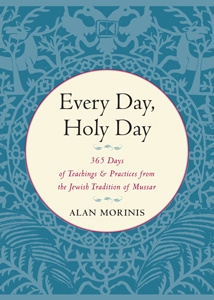
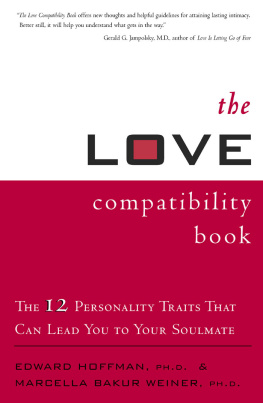

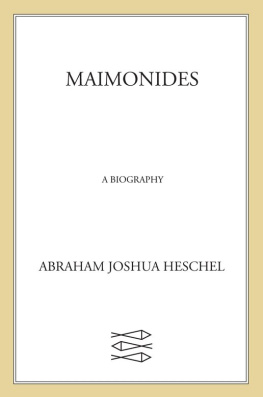
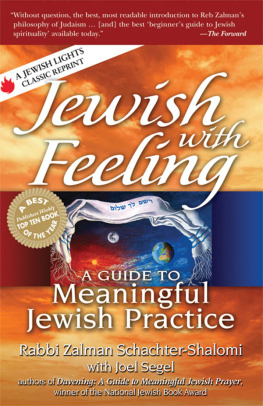
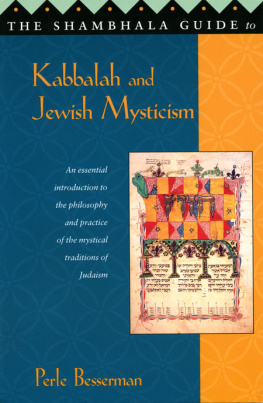
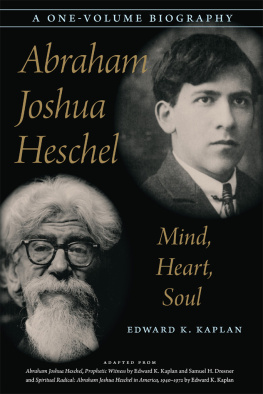
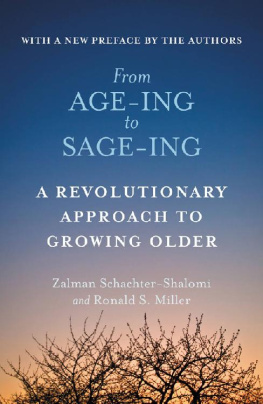
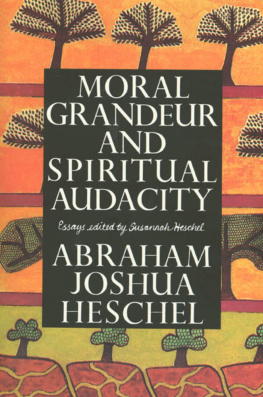
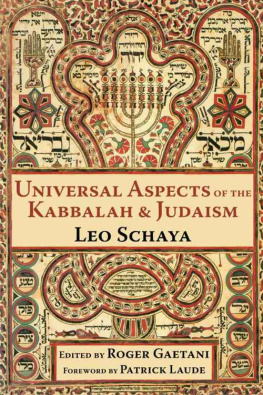
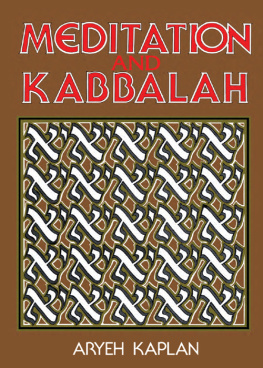


 TRUMPETER Boston & London 2011
TRUMPETER Boston & London 2011